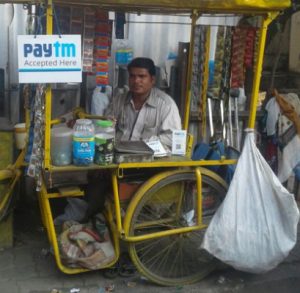What is demonetization?
Demonetization definition: (de-money-tize) or to take away the currency. When a government takes back its hard currency, it is called demonetization of the currency. Governments may do this to avoid fraudulent creation of money, or “black money”. Indian prime minister, Narendra Modi, announced that on November 9, 2016 the 500 and 1,000 rupee notes would be “recalled” by the government due to fraudulent currency creation. Since more than 90% of transactions use physical currency in India, the impact of demonetization may be incredibly life-changing for the entire Indian population. E-wallet or digital transaction alternatives are popping up everywhere in India now. Unocoin, or “Money 2.0” as it has been called, is one of the leading Indian companies used to buy, sell, store, and otherwise transact in bitcoin currency.
While the demand for bitcoin transactions is increasing due to demonetization, every day market transactions are not realistically possible with bitcoins.
Zebpay is another Indian bitcoin company recently launched and which may help reduce fake money issues: https://www.zebpay.com. What is a bitcoin? Check out Zebpay’s video:
What will the effects be on the Indian economy due to demonetizations? Well, it’s difficult to tell immediately. Inflation is the main fear.



